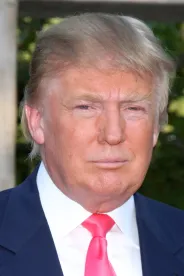On September 22, 2017, President Donald Trump made his seventh group of nominations of prospective United States Attorneys. This group of four nominees brings the current number of Trump’s United States Attorney nominations to forty-six – essentially the halfway mark of the ninety-three United States Attorney positions. (Overviews of the previous nominations can be found here, here, here, here, here, and here, with some bonus coverage here.) The four lawyers Trump nominated last week are:
-
Erin Nealy Cox, a cybersecurity and risk practice advisor in the Dallas/Fort Worth office of McKinsey & Company, to be the United States Attorney for the Northern District of Texas
-
Duane A. (“Dak”) Kees, the ethics and compliance director at Wal-Mart Stores in Bentonville, Arkansas, to be the United States Attorney for the Western District of Arkansas
-
Matthew D. Krueger, an Assistant United States Attorney in the Eastern District of Wisconsin, to be the United States Attorney for the Eastern District of Wisconsin
-
Christina E. Nolan, an Assistant United States Attorney in the District of Vermont, to be the United States Attorney for the District of Vermont
The backgrounds of these nominees are largely consistent with Trump’s previous nominees. Three of the four here (Nealy Cox, Krueger, and Nolan) are current or former federal prosecutors; around 90% of the Trump nominees have either state or federal prosecutorial experience. Those same three also have experience working in large law firms, which around a third of the Trump nominees have. Trump continues make nominations for the small or medium United States Attorney’s Offices as DOJ categorizes them in states where one or both Senators are Republican; the Northern District of Texas (an extra large district under DOJ’s system) is the only non-small/medium district represented in this group.
My prediction several weeks ago that there would be more women nominated for these positions may have taken a while to turn out correctly, but it did, with two women nominees (Texas’s Nealy Cox and Vermont’s Nolan) to go with now-confirmed United States Attorney Jessie Liu in the D.C. office. Trump’s three women United States Attorney nominees have nearly identical backgrounds: each has federal prosecutorial experience, experience working with large law firms, and clerkship experience with federal judges.
Here are a few stray observations:
-
Christina Nolan’s nomination to be Vermont’s United States Attorney came as a result of a unique process by which she was recommended to President Trump by Vermont’s senior Senator (and Senate Judiciary Committee ranking minority member), Patrick Leahy, and Vermont Governor Phil Scott. United States Attorney nominations are typically made in conjunction with recommendations of one or both of the nominee’s home state Senators (depending on party affiliations and other factors); a nominee’s home state Governor rarely, if ever, get involved in the process. With respect to Nolan’s nomination, though, Vermont Senator Bernie Sanders may have recused himself from the process in the context of an investigation into his wife’s role in a failed land deal that led to the closure of Burlington College in Vermont. Given that only one of Vermont’s Senators appeared to have been available for the screening process, the Trump Administration may have wanted Vermont’s Governor, a Republican, to play a part as well.
-
Erin Nealy Cox’s background may be perfectly suited for what are among the thorniest challenges currently facing law enforcement; she has significant experience prosecuting opioid trafficking and with cybersecurity issues, including serving as the United States Attorney’s Office’s computer hacking coordinator during her time as a federal prosecutor. (In the context of cybersecurity, her rules for dealing with kids and phones are worth checking out.)
-
Prior to joining Wal-Mart, Arkansas’s Duane (“Dak”) Kees served in the United States Army Judge Advocate General (JAG) Corps. Kees is the sixth Trump United States Attorney nominee with military experience; with Kees’s nomination, a little over ten percent of the Trump nominees have served in the military. Former President Obama’s nominees had a similar level of military experience as a whole, with twelve of his more than 100 nominees having some sort of military background.
While Trump has now nominated half of the United States Attorney positions, only around a third of those he has nominated have been confirmed. In addition to the three nominees confirmed in August (Justin Herdman of Ohio, John Huber of Utah, and John Town of Alabama), the Senate recently confirmed twelve nominees – Jessie Liu of D.C., Kurt Alme of Montana, Donald Cochran and D. Michael Dunavant of Tennessee, Russell Coleman of Kentucky, Marc Krickbaum and Peter Deegan of Iowa, Brian Kuester and Trent Shores of Oklahoma, Richard Moore and Louis Franklin of Alabama, and Bart Davis of Idaho. (Alabama, D.C., Idaho, Iowa, Montana, and Utah now have the full complement of their United States Attorneys confirmed.) The fifteen confirmations to this point puts Trump on par with Obama, who at this point in his Presidency had seen fourteen of his United States Attorney nominees confirmed. It may be a while before there are a significant number of additional confirmations, though. As of the date of this writing, there are only nine United States Attorney nominees who have been passed by the Senate Judiciary Committee on to the Senate Executive Calendar, which means that the twenty-three nominees who have yet to navigate the committee process still have a ways to go.




 />i
/>i

